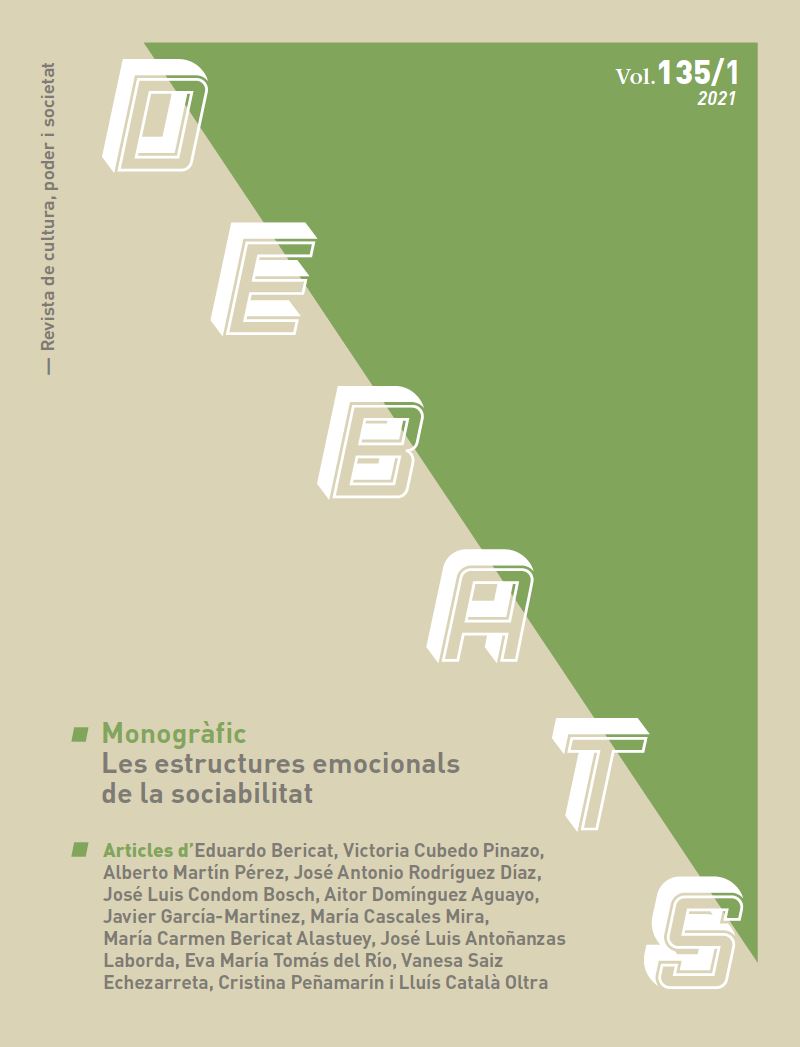Intersectionality and public policies of equality. Elements of discussion
Keywords:
gender, inequality, diversity, social justice, lawAbstract
Equality as a basic principle of our societies continues to lead debates, more or less tense and intense, as well as proposals for analysis and practice for the framework of public policies. One of the frameworks that embraces the principle of equality is the intersectional perspective as a determined and heuristic commitment to address the complexity of social inequalities that is rooted in the contribution of black feminisms and that we can consider as an essential tool for to feminist theories. In this text we approach this perspective, first of all, taking a tour of the evolution of public equality policies in Spain in accordance with the legislative framework in force at each stage. Next, we will consider some of the main contributions of the intersectional
perspective by naming some of the leading authors' contributions. Finally, we highlight the intersectional proposal for its application to the future Valencian law of equality because we understand equality from an intersectional perspective is to frame it in terms of recognizing diversity and making it more inclusive.
Downloads
References
Arendt, H. (1990). On revolution. Londres: Peguin Random House.
Collins, P. (2017). The Difference that Power Makes: Intersectionality and Participatory Democracy. Revista de
Investigaciones Feministas, 8(1), 19-39.
Crenshaw, K. (1989). Demarginalizing the Intersection of Race and Sex: A Black Feminist Critique of Antidiscrimination
Doctrine, Feminist Theory and Antiracist Politics. University of Chicago Legal Forum, 1989(1), 139-167. Recuperat
de http://chicagounbound.uchicago.edu/uclf/vol1989/iss1/8
Espinosa, Y. (2014). Una crítica descolonial a la epistemología feminista crítica. El Cotidiano, 184, 7-12. Recuperat
de http://www.elcotidianoenlinea.com.mx/pdf/18402.pdf
Kyrillos, G. M. (2020). Uma análise crítica sobre os antecedentes da interseccionalidade. Revista Estudos Feministas,
(1). DOI: https://doi.org/10.1590/1806-9584-2020v28n156509
La Barbera, M. C. (2016). Interseccionalidad, un «concepto viajero»: Orígenes, desarrollo e implementación en la Unión Europea. Interdisciplina, 4(8), 105-122.
Martínez-Palacios, J. (2017). Exclusión, profundización democrática e interseccionalidad. Revista de Investigaciones
Feministas, 8(1), 53-71. DOI: http://dx.doi.org/10.5209/INFE.54827
Morcillo Gómez, A. (2012). Españolas con, contra, bajo, (d)el franquismo, Revista Desacuerdos, 7, 42-63.
Nash, M. (ed.) (2013). Represión, resistencias, memoria: Las mujeres bajo la dictadura franquista. Granada: Editorial
Comares.
Rodó de Zárate, M. (2019). Gènere i nació: Contradicció irreconciliable o intersecció d’eixos? Idees: Revista de temes
contemporanis, 47.
Rodríguez Ruiz, B. (2013). ¿Identidad o autonomía? La autonomía relacional como pilar de la ciudadanía democrática.
Anuario de la Facultad de Derecho de la Universidad Autónoma de Madrid, 17, 75-104.
Tasa Fuster, V. i Villar-Aguilés, A. (2020). Igualtat inclusiva: Cap a una nova llei valenciana d’igualtat. València: Fundació
Nexe, Riu Rau Editors.
Villar-Aguilés, A. i Pecourt Gracia, J. (2021). Antifeminismo y troleo de género en Twitter: Estudio de la subcultura
trol a través de #STOPfeminazis. Teknokultura: Revista de Cultura Digital y Movimientos Sociales, 18(1), 33-44.
Downloads
Published
Versions
- 2024-12-23 (8)
- 2024-12-23 (7)
How to Cite
Issue
Section
License
Without prejudice to the provisions of article 52 of Spanish Law 22/1987 of November 11 on Intellectual Property, BOE (official state bulletin) of November 17, 1987, and pursuant to said legislation, the author(s) surrender(s) free of charge its rights of edition, publication, distribution and sale of the article, for its publication in Debats. Journal on Culture, Power and Society.
Debats. Journal on Culture, Power and Society is published under the Creative Commons license system in accordance with the «Recognition - Non-Commercial (by-nc) modality: The generation of derivative works is permitted provided that commercial use is not made. Nor can the original work be used for commercial purposes».
Thus, when the author submits his/her contribution, he/she explicitly accepts this assignment of publishing and publishing rights. Authors also authorize Debats. Journal on Culture, Power and Society to include their work in an issue of the journal to be distributed and sold.











